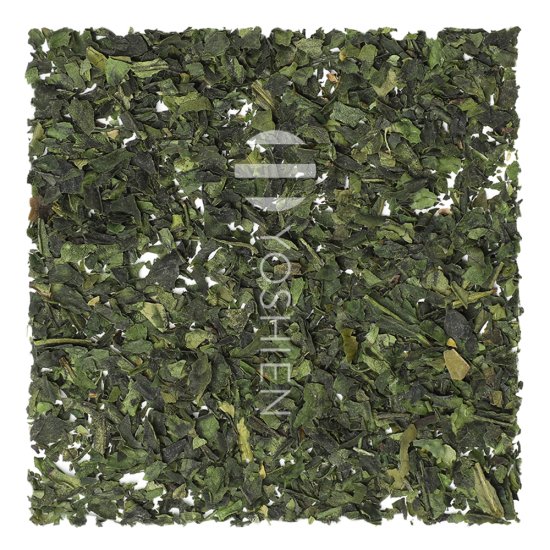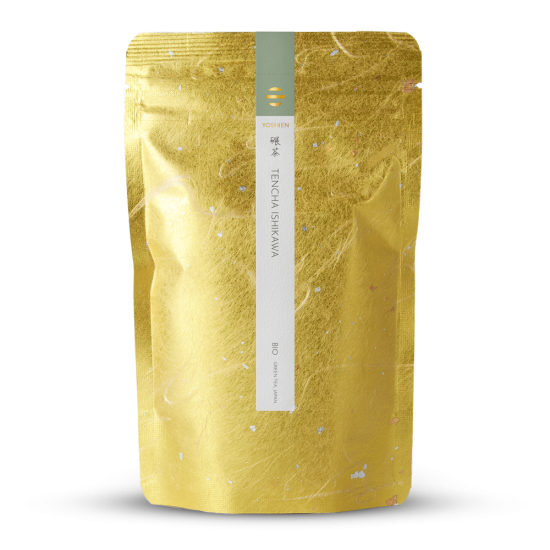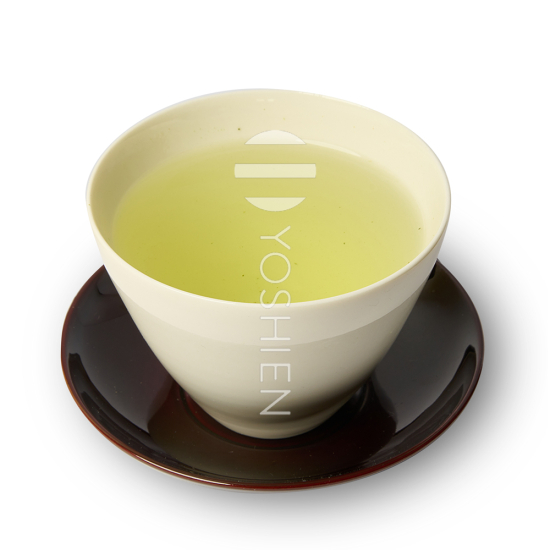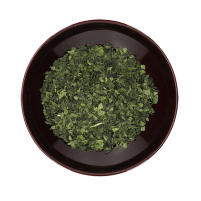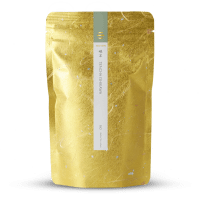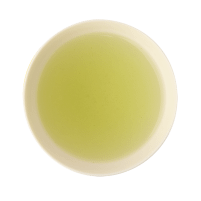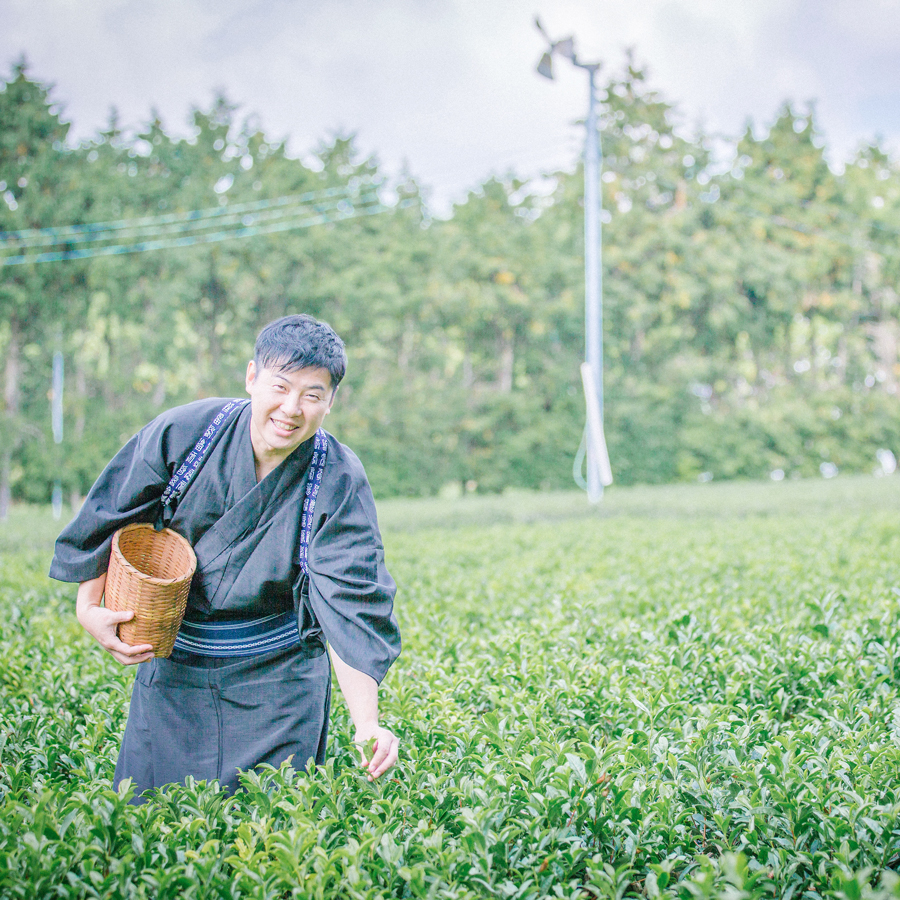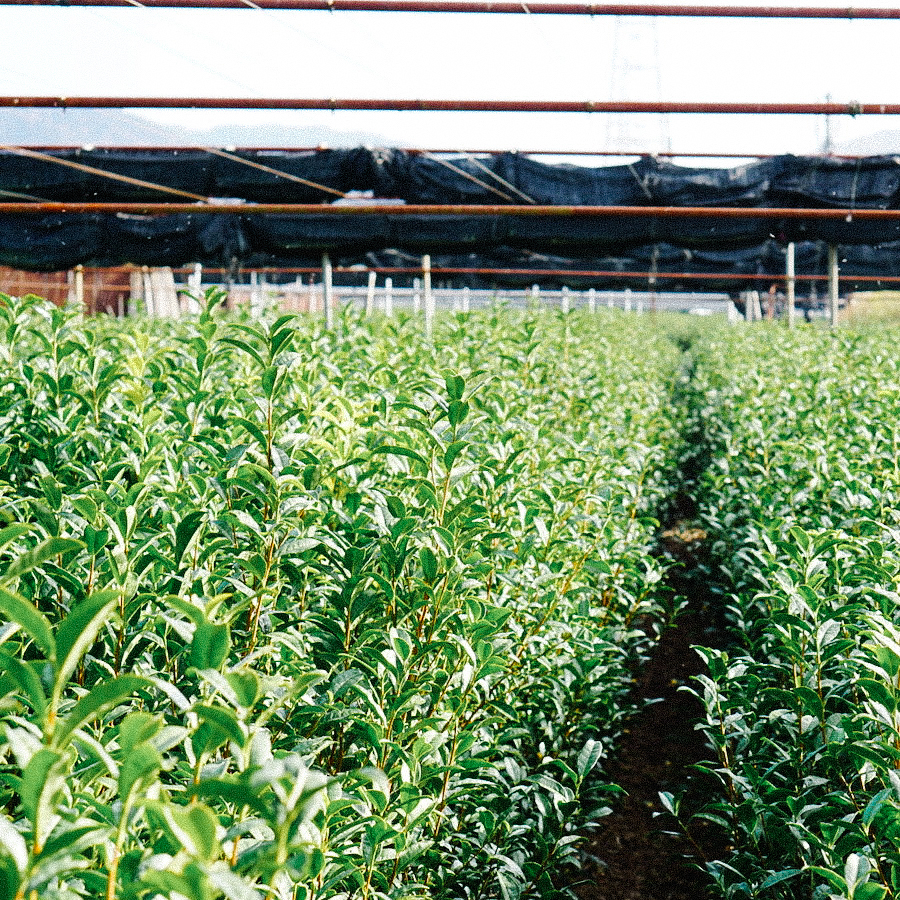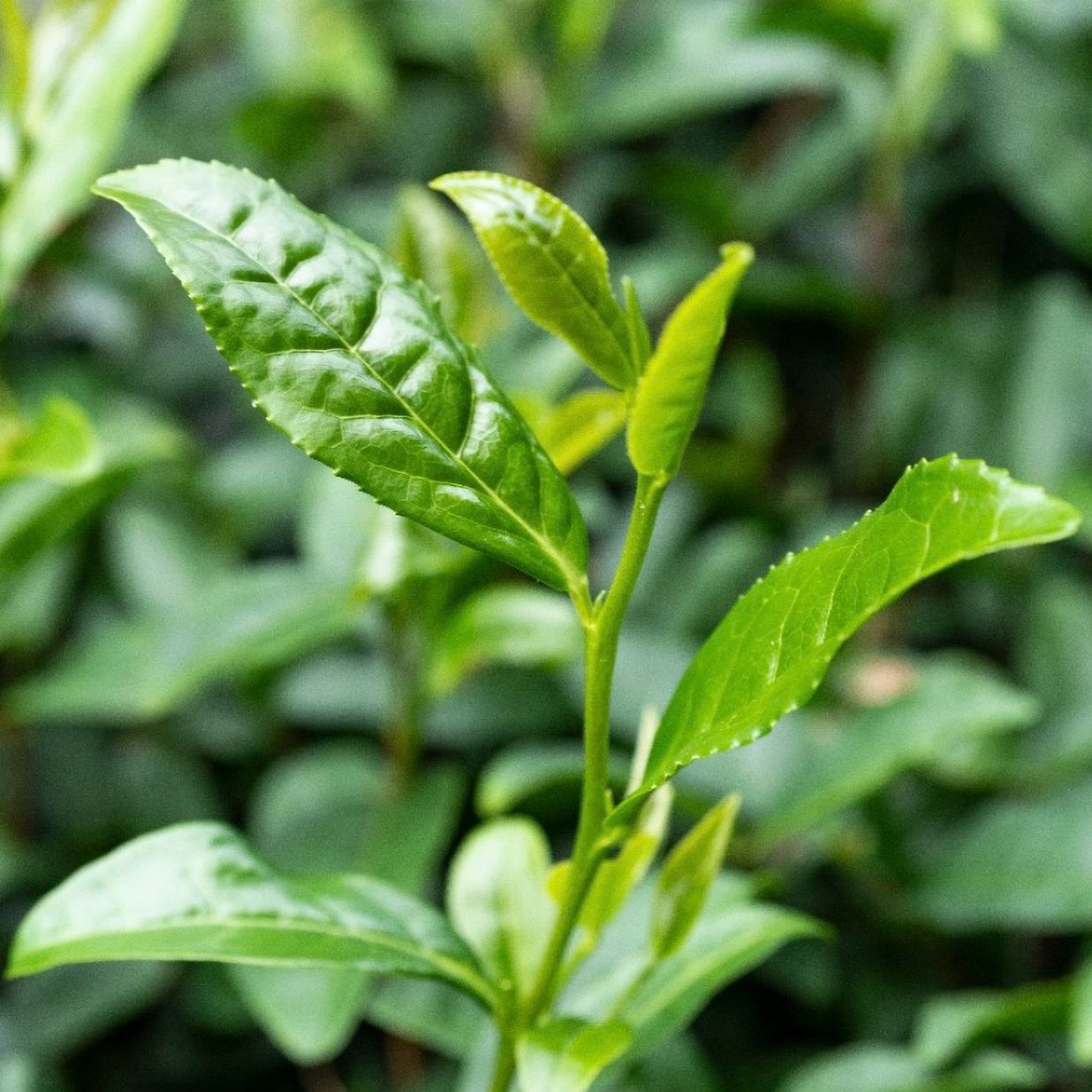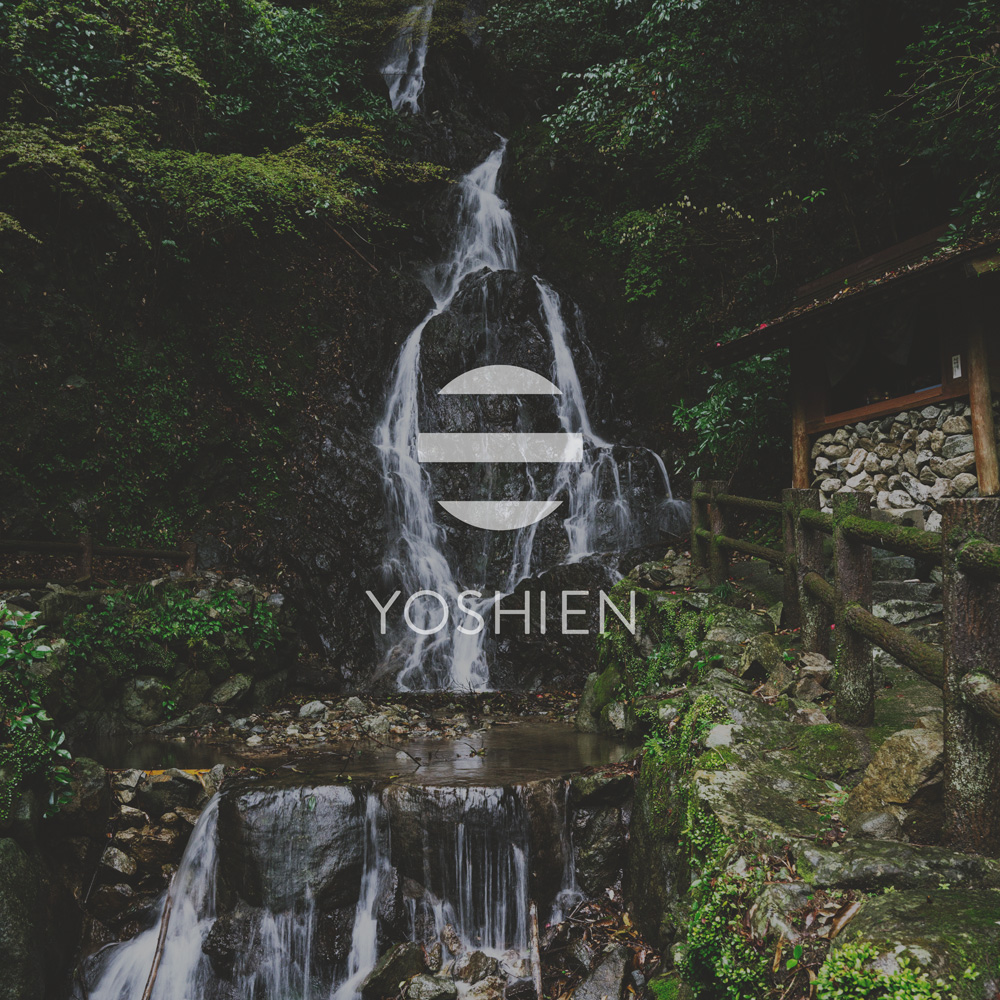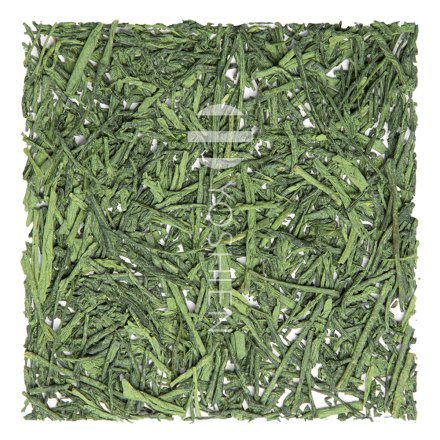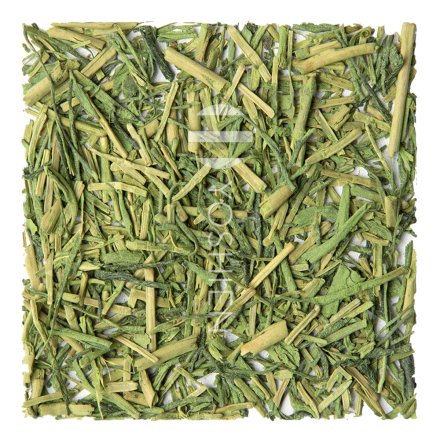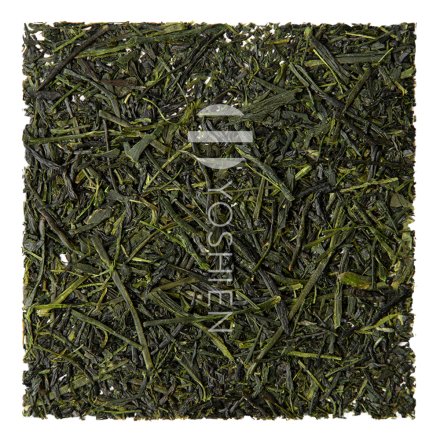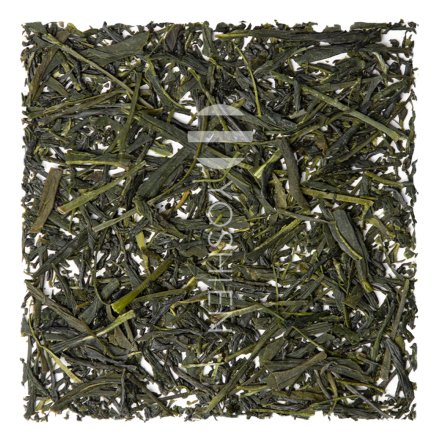The region of Aichi, alongside Uji and Hoshino, is one of the best matcha cultivation regions in Japan. The Ishikawa family produces mainly organic matcha teas at their northern fields that are at an unusually high elevation of 650m. They use these conditions to their advantage, as the area is home to fewer pests. The woods that surround the fields prevent pesticide drift from other farms, and the Ishikawas also produce their own natural and fermented fertiliser, in order to maintain their high organic standards. The farm has been certified organic since 1995.For shading, the Ishikawas have developed 3m high tana trellises, which are the tallest in Japan. Their matcha is also locally stone-milled following traditional methods.
This Tencha Ishikawa follows all the same production stages as premium matcha except for the final milling process. The tea plants are shaded for 20 days before the first harvest. The harvested leaves are promptly steamed (chumushi) to stop the fermentation process and then cooled with air to preserve their rich green colour as well as to separate leaves that may have gotten stuck together during steaming. In the next stage the leaves are dried in a special tencha oven (tencha-ro) for 20 minutes between 90 and 180°C. In the last step, the lamina (leaf tissue) is not only separated from the stem and veins but also cut with bursts of air within a special "toh-mi" machine. While the separated stems are turned into stem teas such as karigane, hojicha, and kukicha, the lamina can either be kept as tencha (仕上碾茶, shiage tencha) or milled into matcha.
Organic Certification

PL-EKO-01
Nicht-EU-Landwirtschaft




